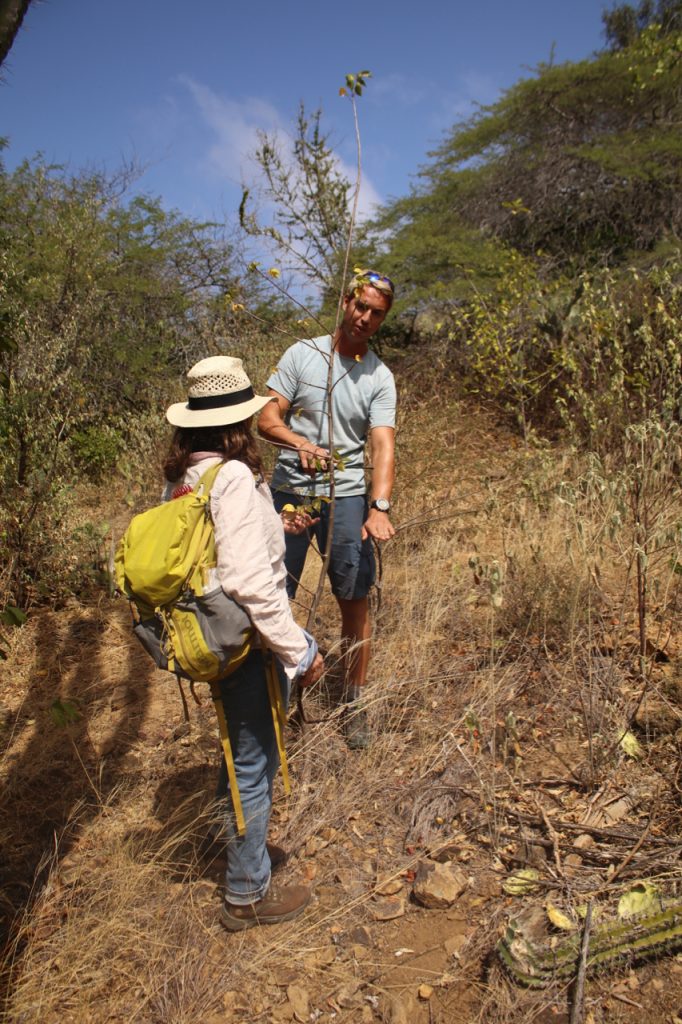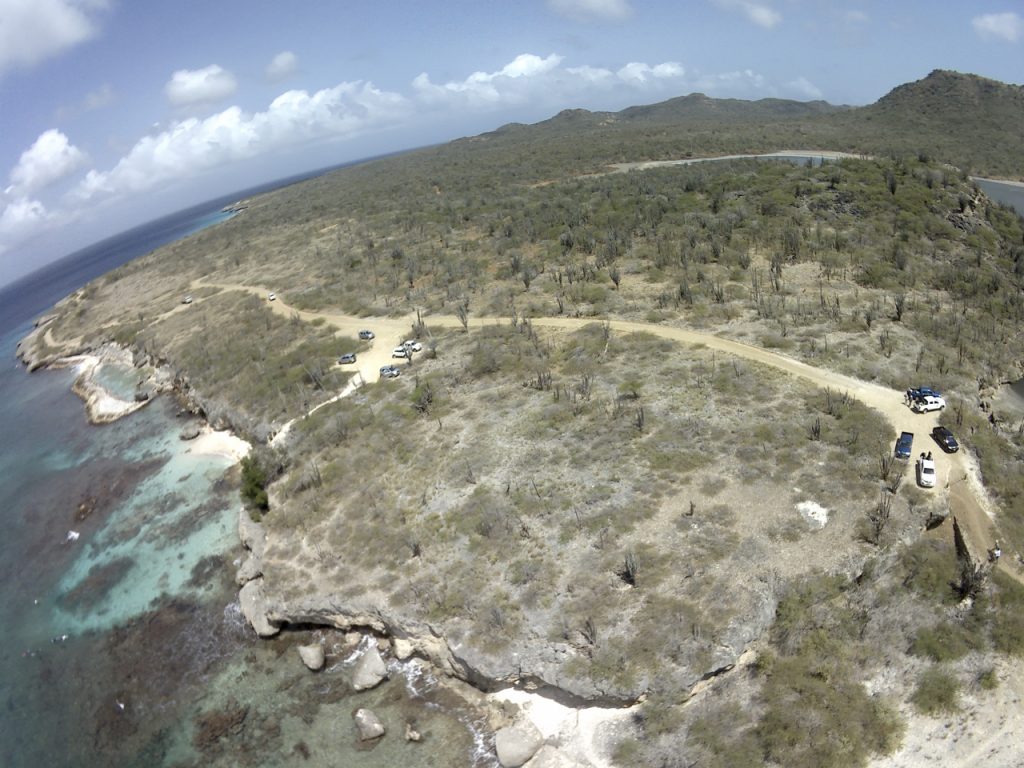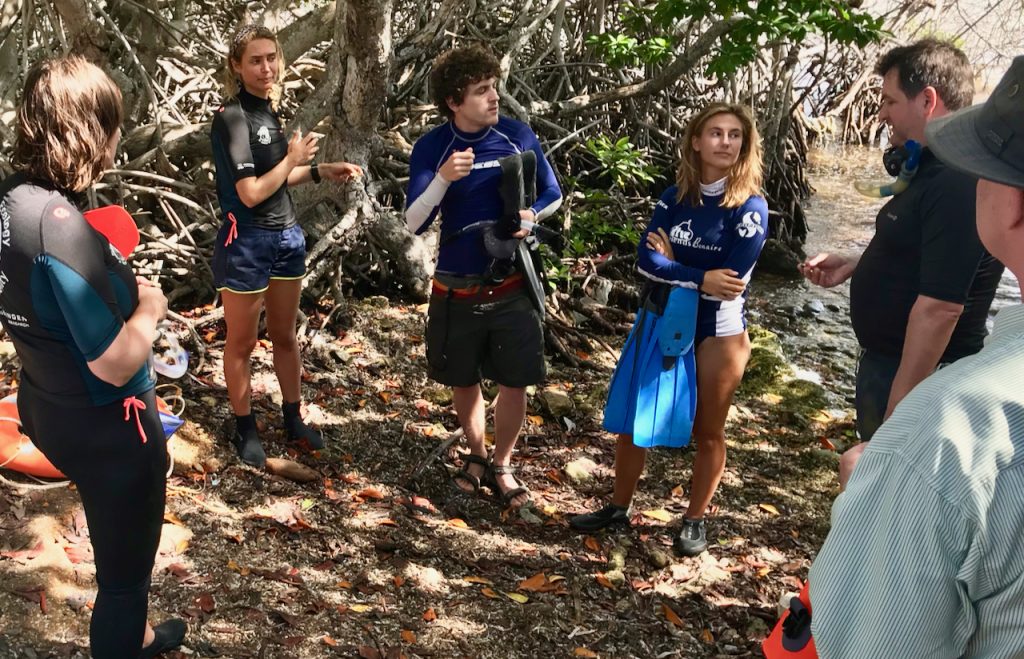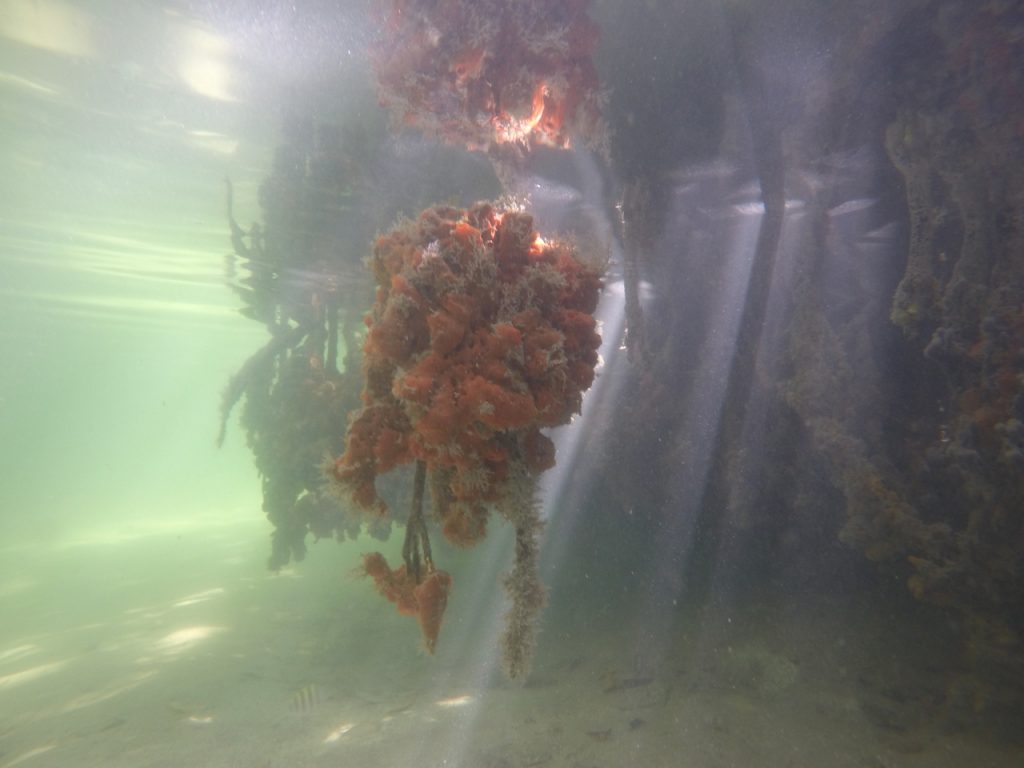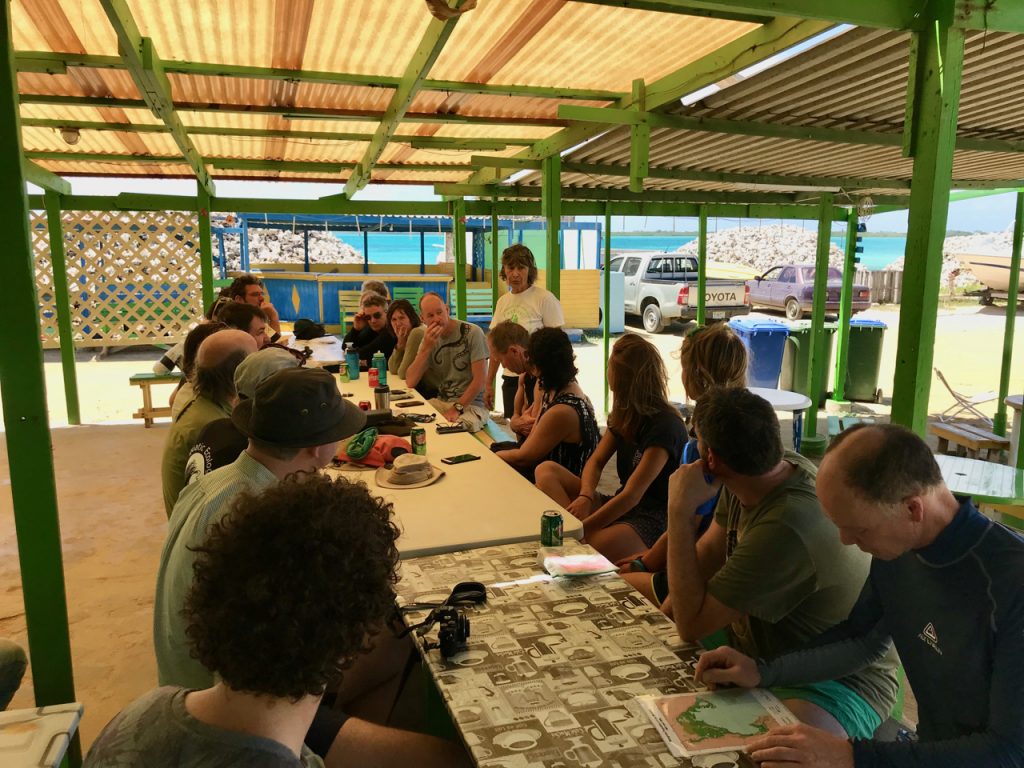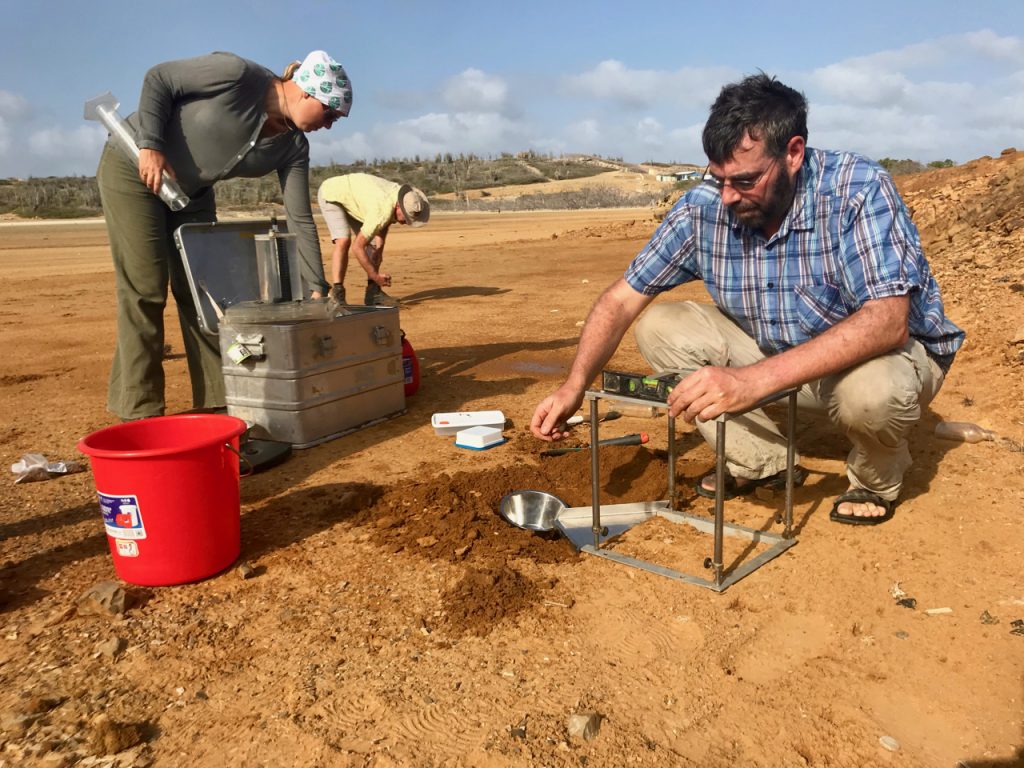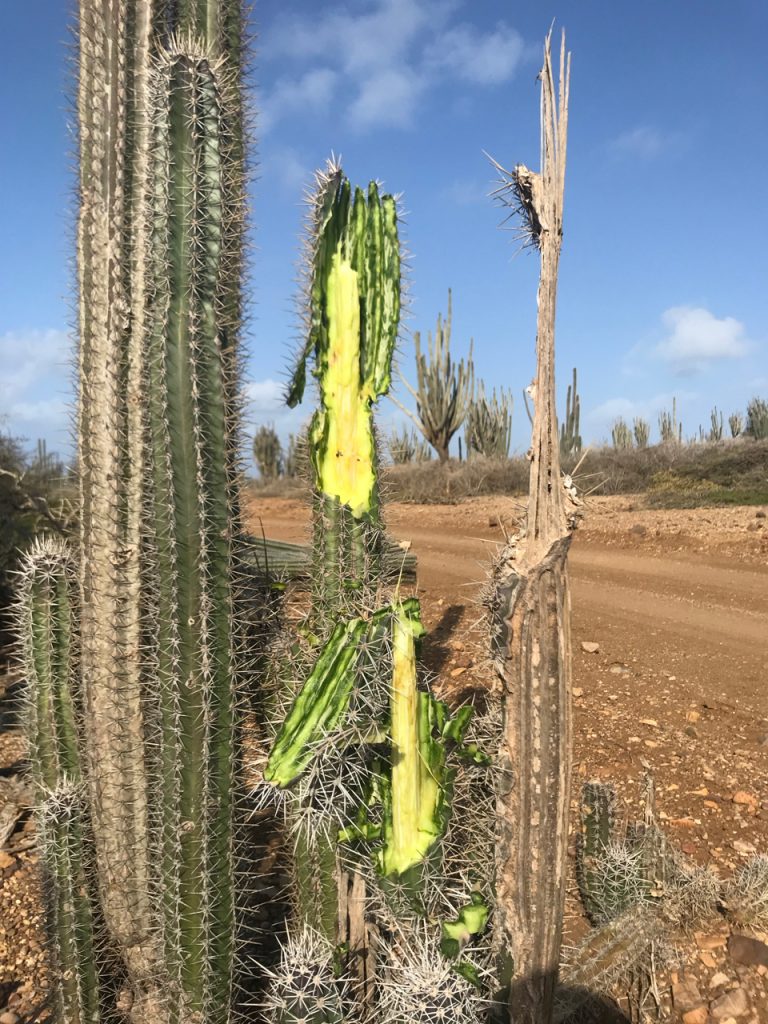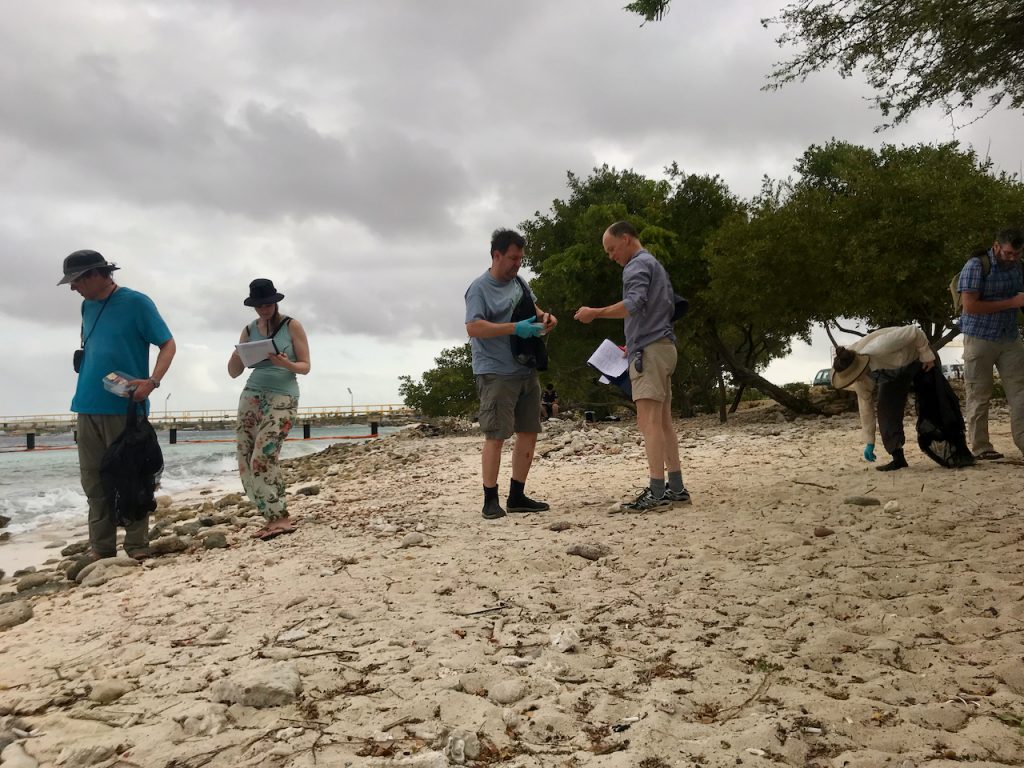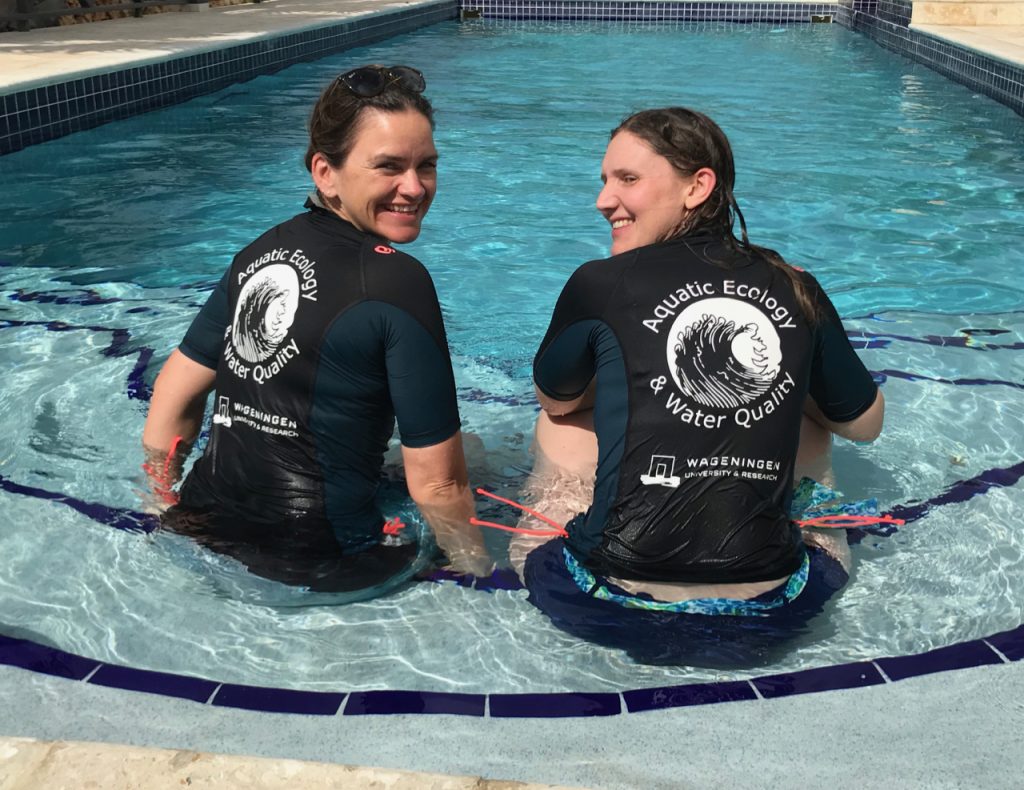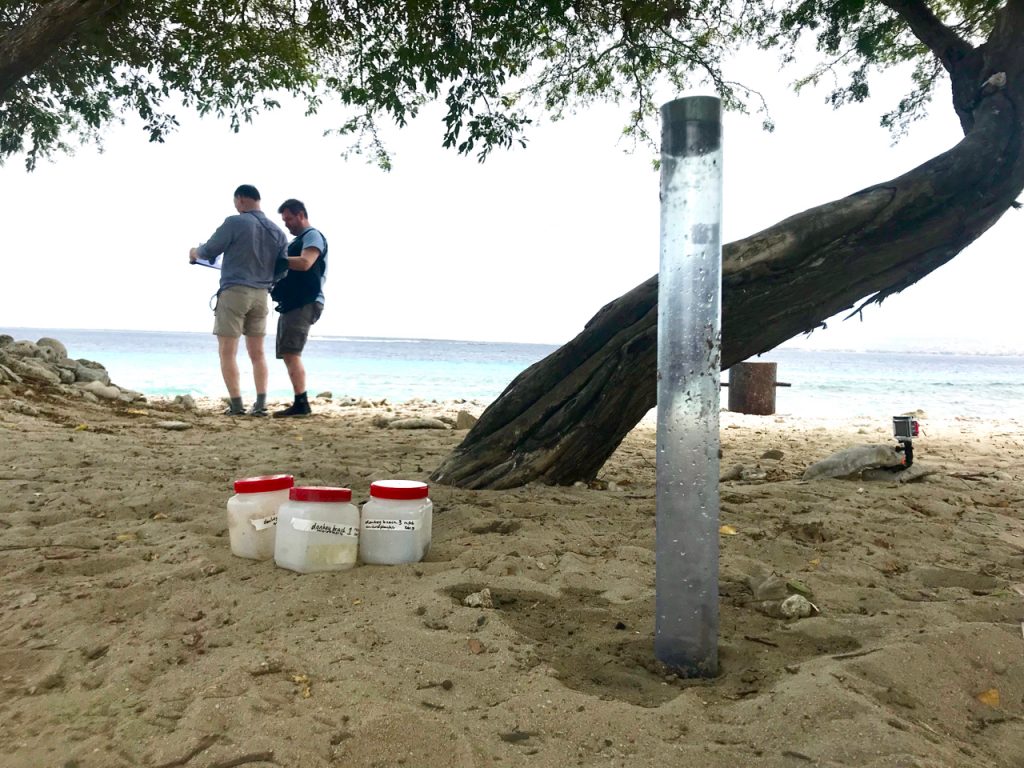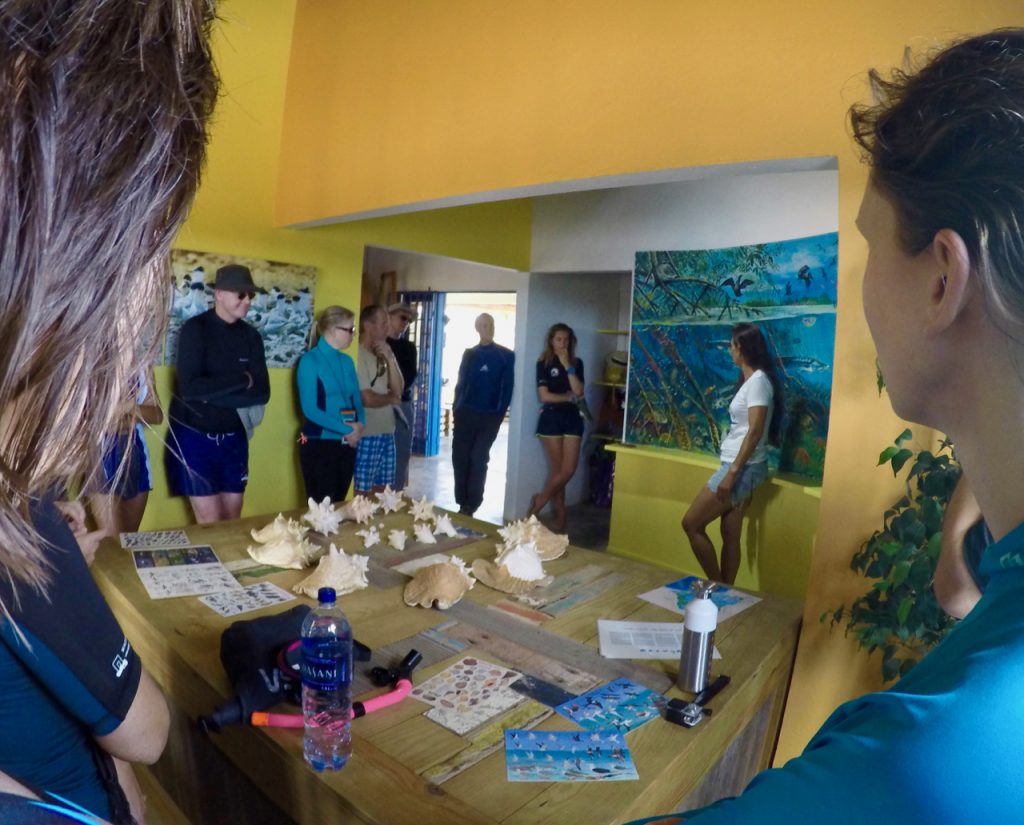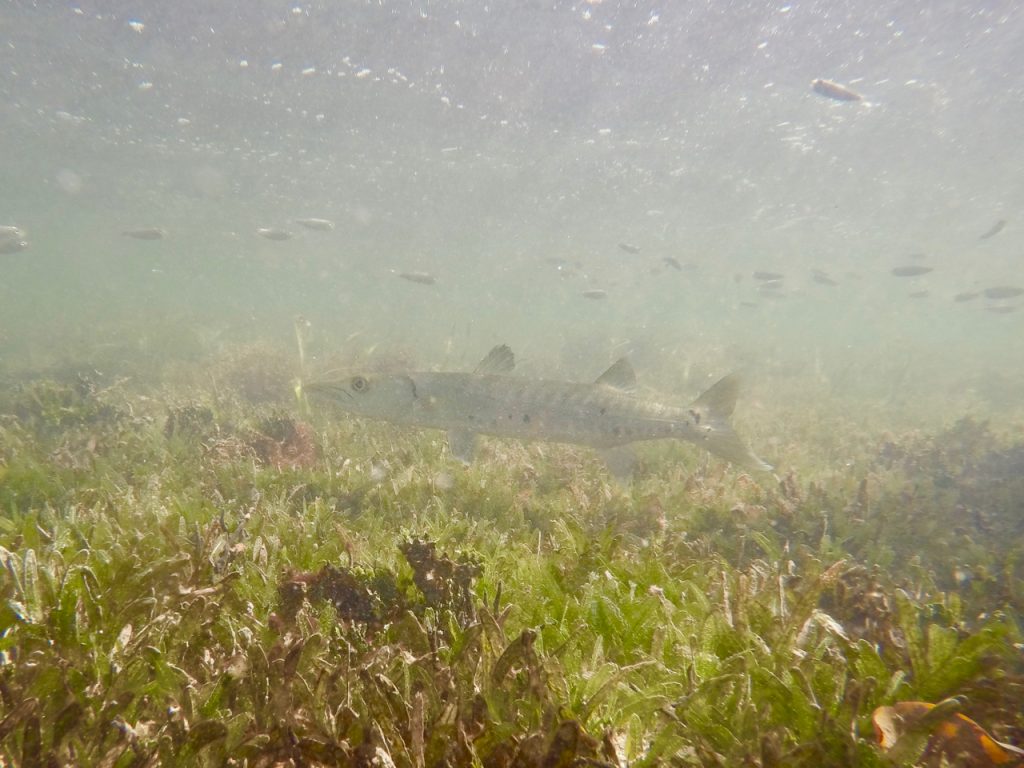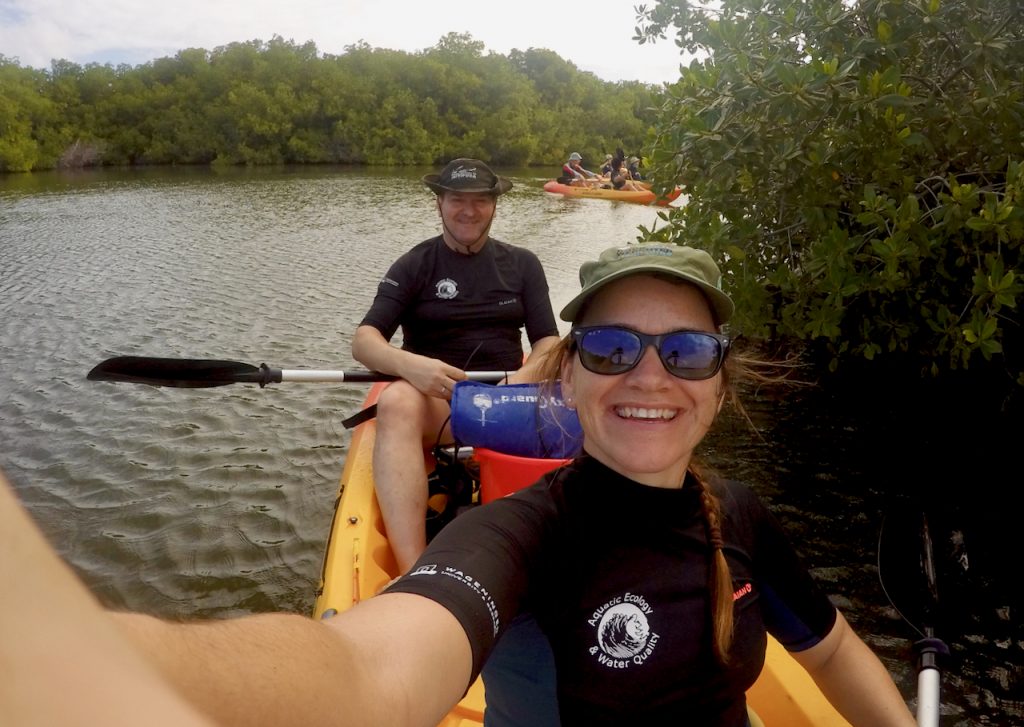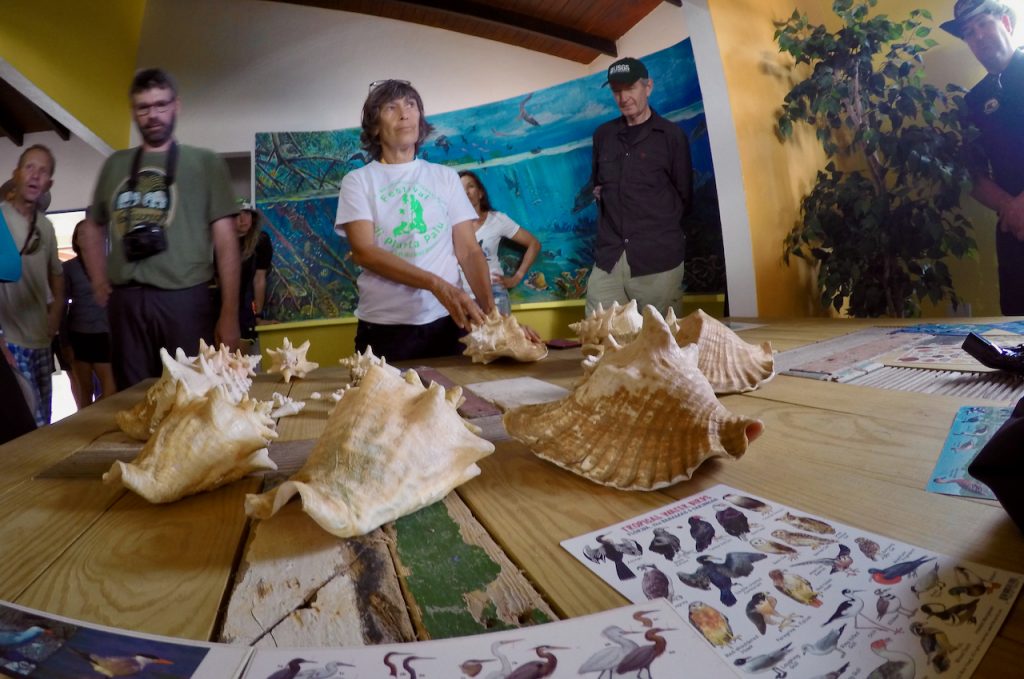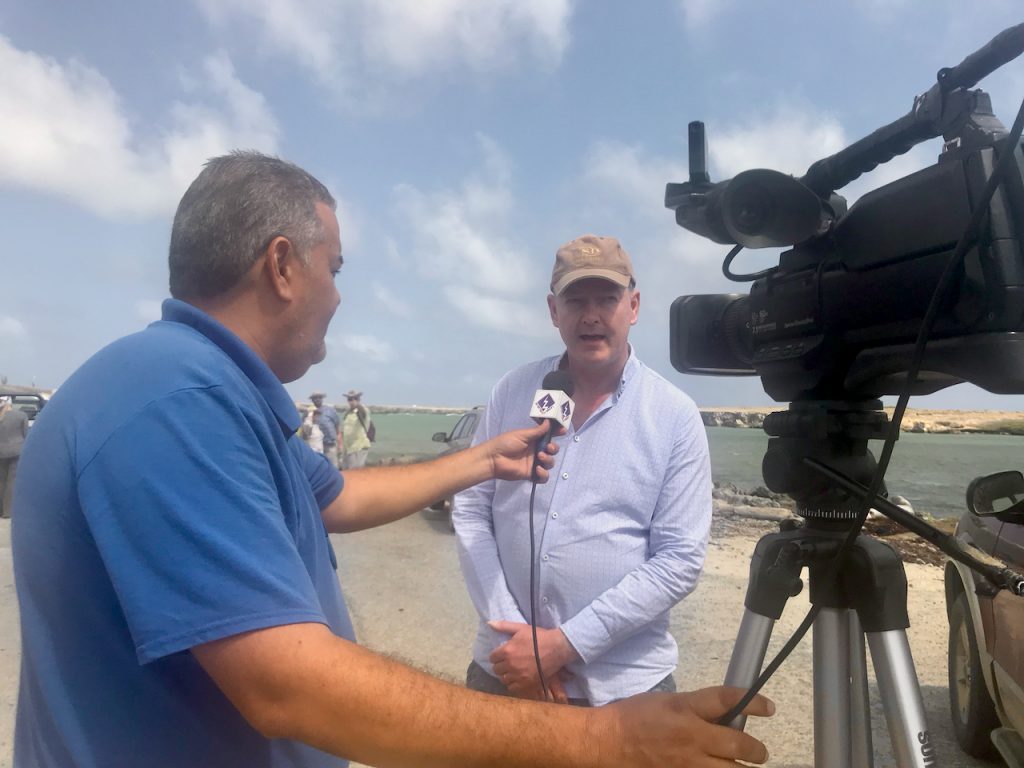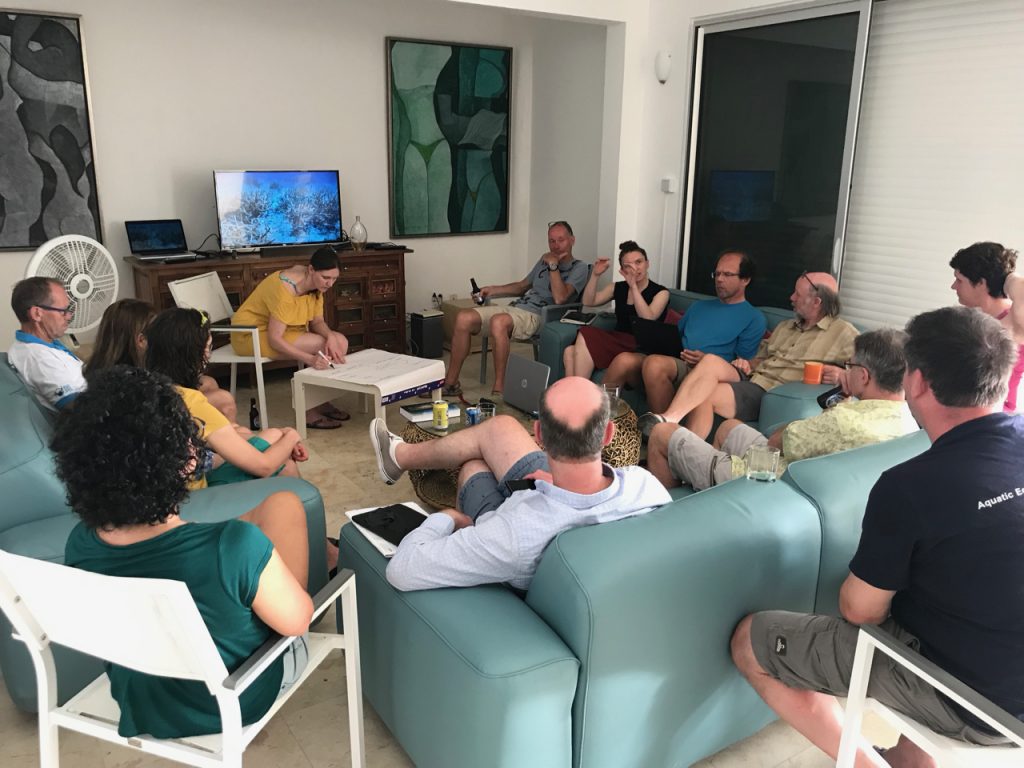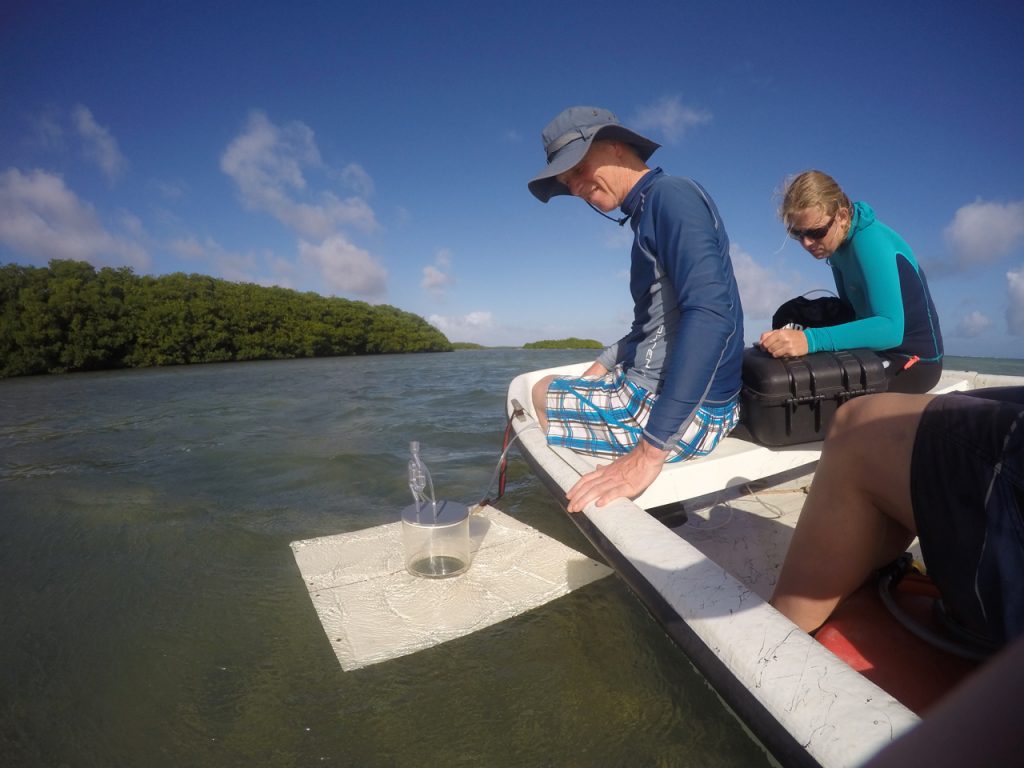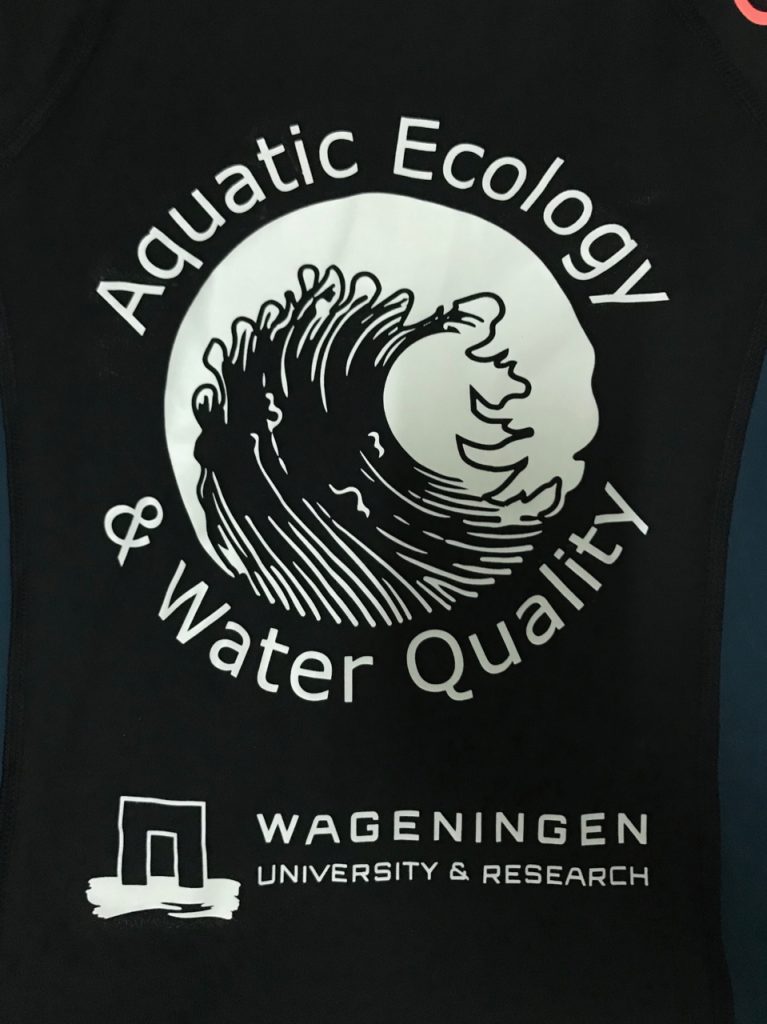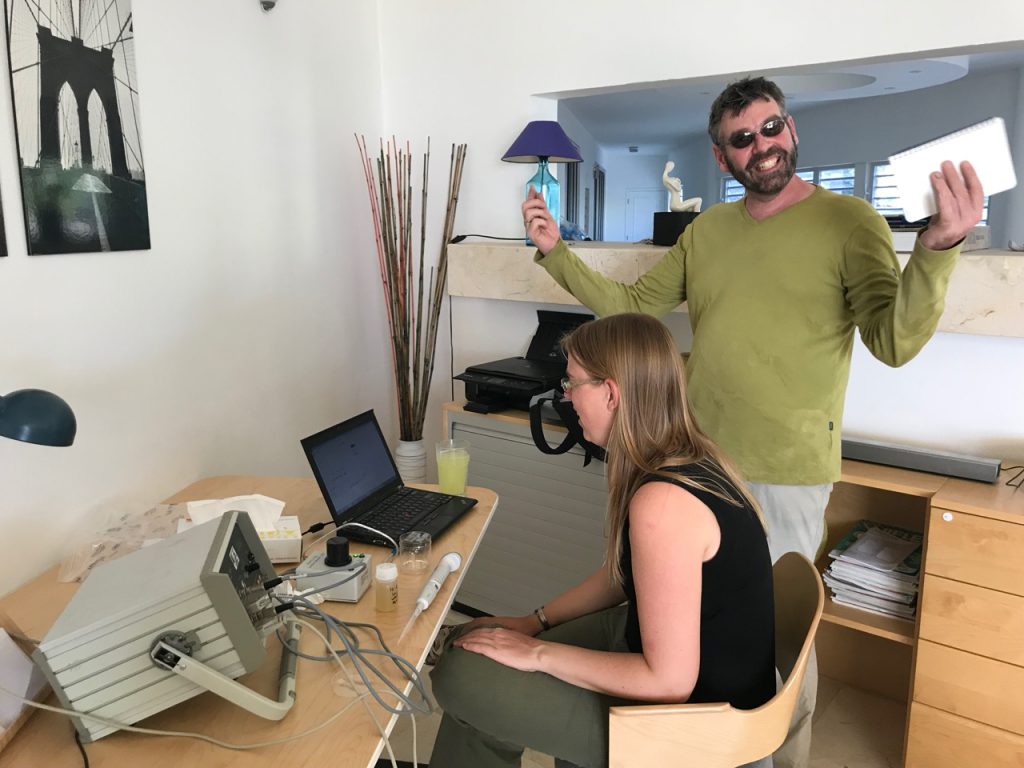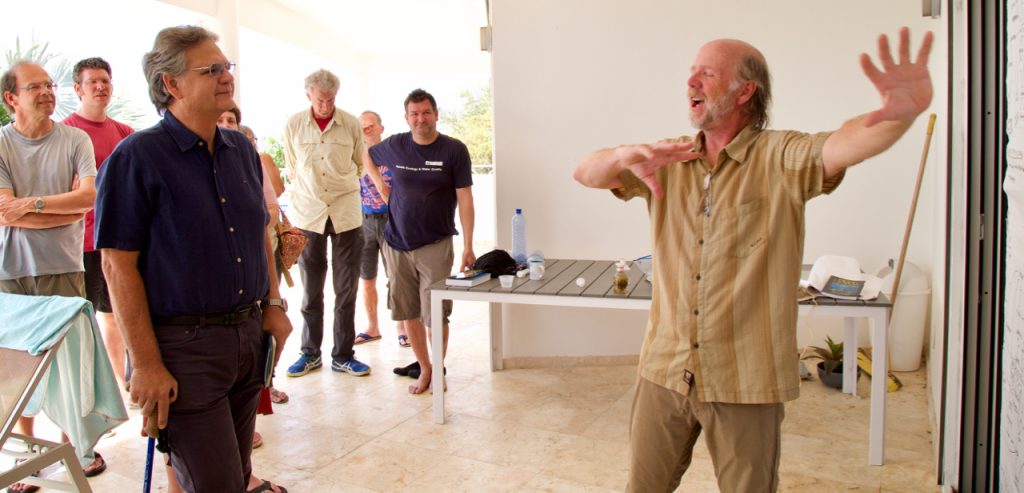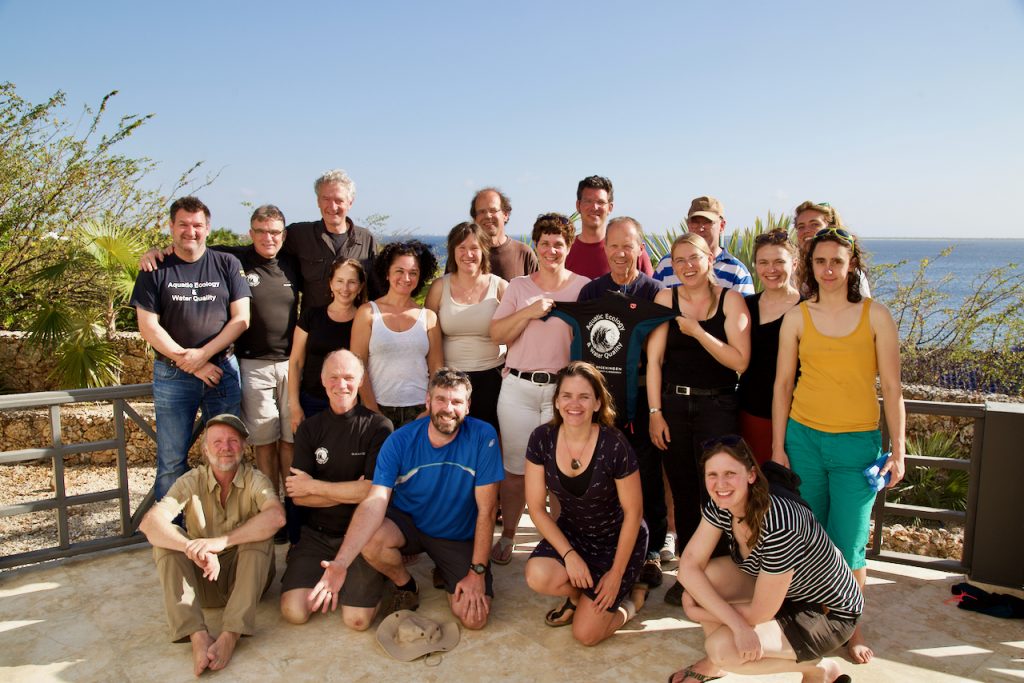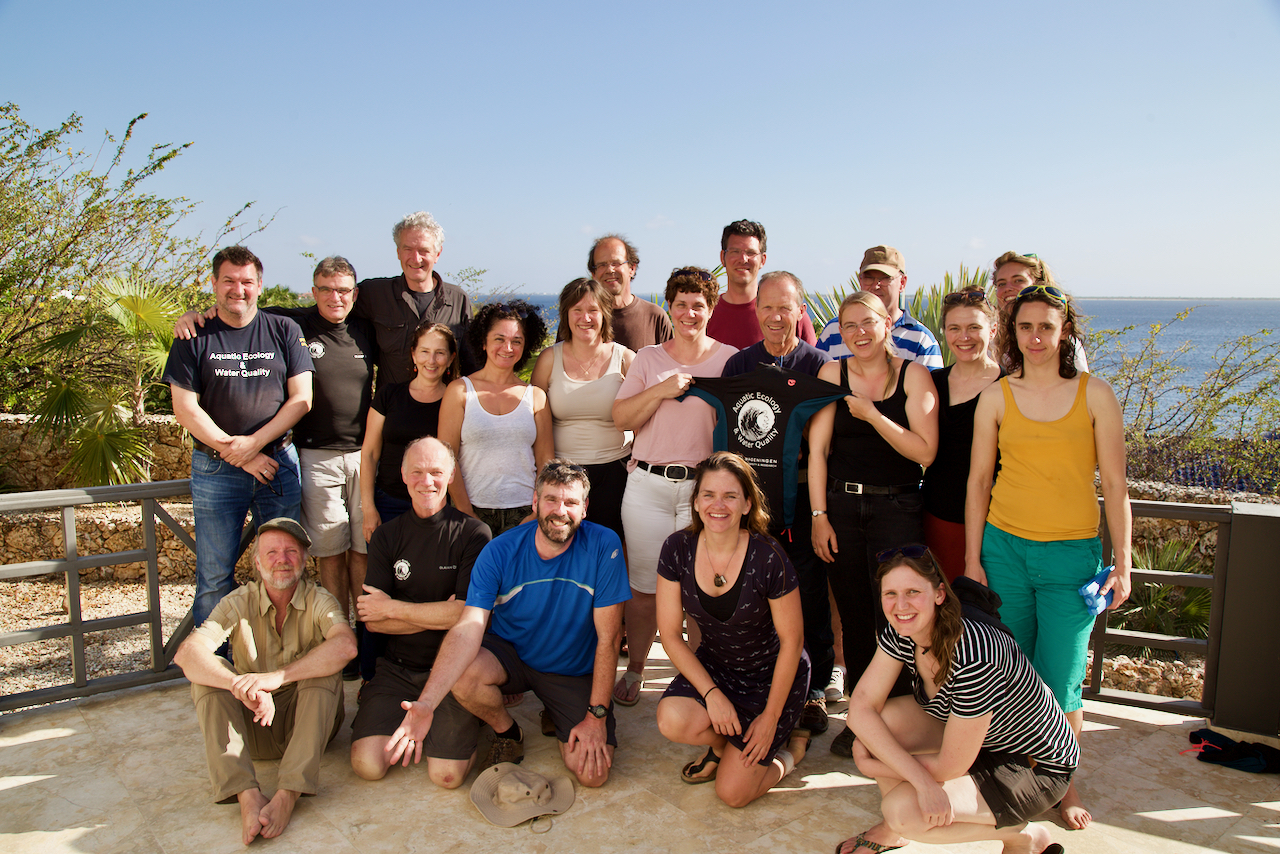Last month our group – the Aquatic Ecology and Water Quality Management Group @ WUR – travelled to the Caribbean to analyse the socio-ecological-system of Bonaire. This happened in the same week that a report came out stating that the nature in the Dutch Caribbean is under heavy pressure, highlighting the need for a change in nature management and for additional research. So we went!
The expedition was filled with excursions, experiments, interviews and talks by local experts, and a socio-ecological network analysis. Every day had a central theme.
Day 1 was all about the coastal ecosystems of Lac Bay, mangroves and seagrasses. With Elly Alberts we kayaked and snorkeled through mangroves meanwhile conducting water quality measurements. Sabine Engels showed recent mangrove restoration efforts, and Fee, Julia and myself presented our seagrasss experiments. We measured greenhouse gasses, and used a rain simulator to look at surface water run off in order to map the connectivity between the land and coastal ecosystems.
Day 2 was about cyanobacteria mats and coral reefs. Snorkelers were send on a quest to investigate interactions between organisms. Divers collected cyanobacterial mats from multiple depths after which productivity was measuredon cyanobacteria from different locations. Our expedition was not only about natural and social sciences. Culture was an important part of the agenda too. During lunch a spontaneous concert arose in Rincon by Marten and our new friends. And in the evening Uchi (Regina) Frans read us some of her poems in Dutch and Papiamentu, and told many entertaining stories of Bonaire in the past. Also great way to learn more about the perceptions of non-ecologist-Bonairians.
Day 3 Land-sea interactions. Quirijn Coolen, Caren Ekrich, and Roxanne Francisca showed us active and passive forest restoration projects in Washington slagbaai national park. We also sampled land-sea transects to investigated runoff and erodibility and learned about the importance of soil type in estimating runoff, in addition to grazing impacts. Under water we sampled sedimentation on the reefs.
Day 4 We visited the landfill, learned about marine debris, sampled transects with Carolyn Caporusso and Sharon Bol, and learned how plastic is turned into profit in a workshop from an NGO from Curacao. After that our new chair holder, Bart Koelmans, was interviewed for the local news. We also helped in sampling water quality and microbes to advise on a water quality issue in the green waters of the Marina.
Day 5, our last day, was a day of reflection, with a nice overview on nature policy by Paul Hoetjens and a first socio-ecological network analysis of Bonaire. We sketched a concrete follow up plan including new research projects, a new course, and policy brief and more. We hope to follow up soon on this.
We really learned a lot and came back tired but recharged. Most of the group visited Bonaire for the first time and our group got a good impression about Bonaire’s nature, its current state and the complexity of some of the nature management issues. A big thank you for Marten that made this all possible and for all that made this expedition so richly filled.
See below for a brief impression of our trip.
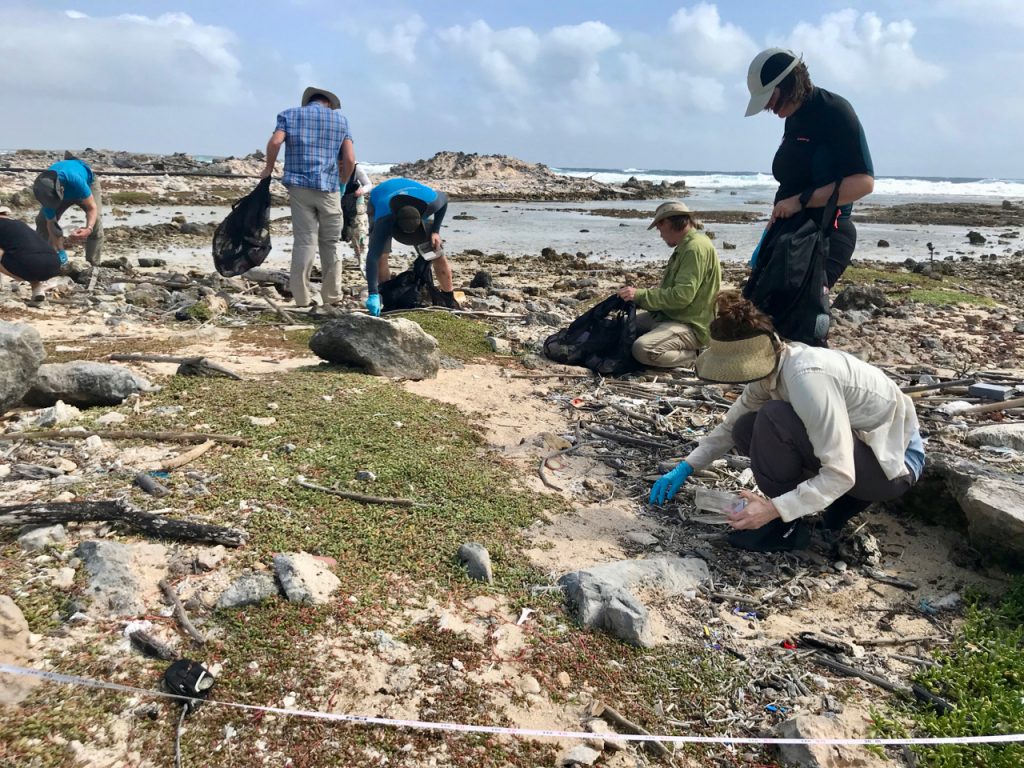
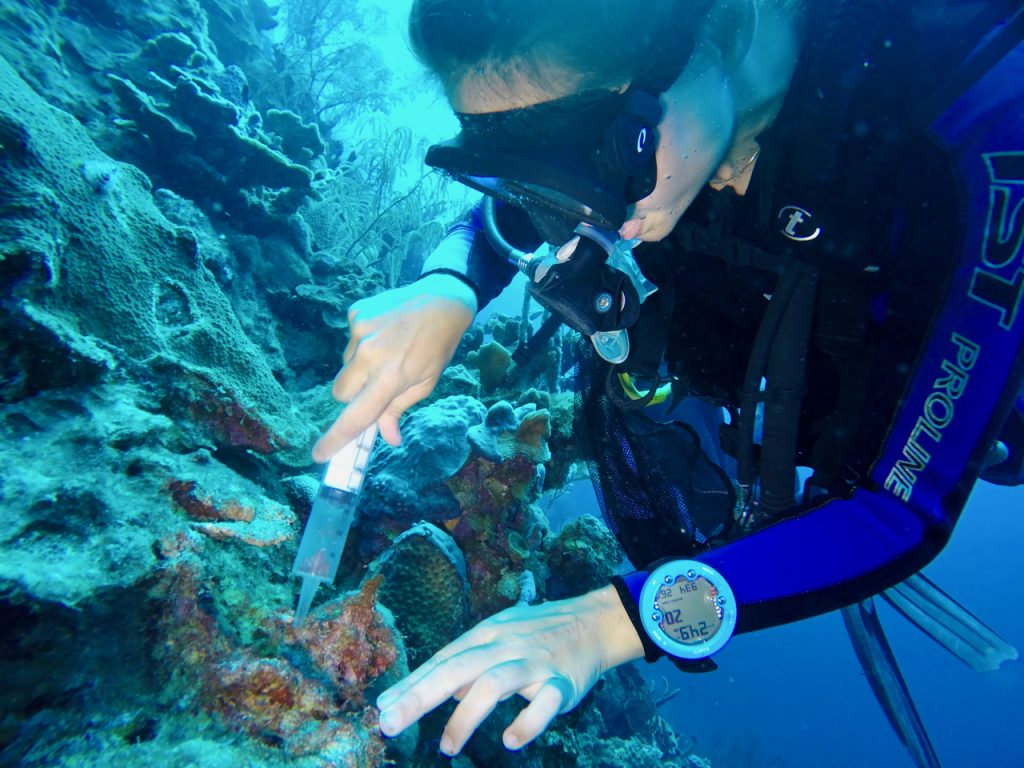
. 